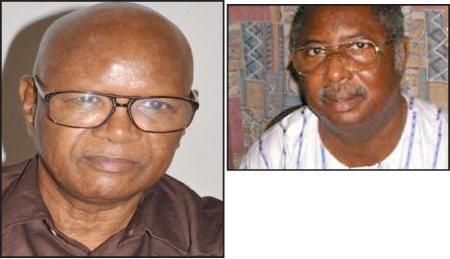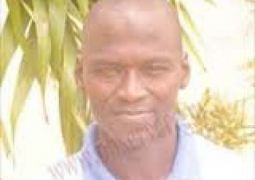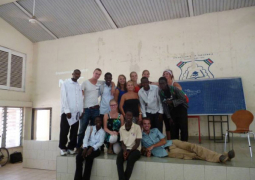
It
is fifteen years on, and we are still waiting for a definitive closure to the
assassination of veteran Gambian journalist Deyda Hydara. While we now have a fairly good idea as to
who were responsible for his death, and the motives for his killing, but we are
still waiting for justice for his family and friends.
Deyda
Hydara, who was co-proprietor and Managing Editor of The Point newspaper was
gunned down on 16th December 2004, on the 13th anniversary of the newspaper,
which he founded with his two childhood friends; Pap Saine and Baboucarr Gaye.
It happened late in the evening on Sankung Sillah Road in the Kanifing
Industrial Estate, not far from the Police Intervention Unit (PIU) headquarters
on Mamadi Maniyang Highway while he was dropping two of his staff, Nyangsara
Jobe and Ida Jagne.
While
at the time everyone suspected that the regime of ex-President Yahya Jammeh had
a hand in the assassination, but hardly anyone knew why a harmless person like
Deyda could be the target of such a cold-blooded murder. However, even the
behavior and comportment of ex-President Jammeh and some senior members of his
regime with regards to the case, were clear indications that the regime had
something to hide. We can all recall from the very onset, the attitude of the
regime towards the case was quite bizarre. Not only was the family not invited
to the postmortem examination, but the autopsy report was also never made
available to them, even when they requested for it. Up to this very day,
neither the family nor the Gambia Press Union (GPU), who are an interested
party, knew what has happened to the autopsy report or even the bullets that
were removed from his body. Therefore, something was always definitely quite
fishy with the attitude of the Jammeh regime towards Deyda’s assassination.
Instead
of putting in all necessary efforts to investigate the killing as was expected,
the regime continued to demonstrate its complete indifference to the case. In
fact every time President Jammeh commented on the case, he made some ambiguous
remarks which tended to confuse rather than clarify his government’s stand
point on the issue. A case in point was an interview he had with the BBC in
November 2011 in which he compared Deyda’s brutal murder to the deaths of other
Gambians in road accidents, asking why anyone should be concerned about Deyda’s
death more than those Gambians who had died in other circumstances, thus
further dashing any hopes that his government had any intentions of
investigating the murder.
We
can also recall the only official report that was ever released on the case,
dubbed ‘Confidential Report’ that was issued by the National Intelligence
Agency (NIA) in June 2005, instead of displaying any seriousness in
investigating the case, they chose to subject Deyda’s personal character to all
sorts of disparaging comments, even to the extent of blaming his death on his
‘wayward behaviour’. And since then, the regime showed no interest in the case.
It
can also be recalled that during events commemorating the first anniversary of
his death when the GPU and its invited guests from the sub-region and abroad
attempted to visit the site where he was killed, they were met by a large
contingent of heavily armed para-military forces who said they were given
instructions not to allow anyone on the site. That of course was yet another
clear indication that the authorities had something to hide.
Therefore,
the confessions at the Truth, Reconciliation and Reparations Commission (TRRC)
by some members of ex-President Jammeh’s killer squad, the Junglers, that they
participated in his assassination, did not come as a big surprise to many
people. It was merely a confirmation to what many had always suspected. Even
the claim that they were acting on the orders of ex-President Jammeh, was not a
surprise. What was however not quite obvious was the reason why anyone would
target Deyda for elimination. Anyone who intimately knew him, must have known
that he was an advocate for peace and social cohesion. Even in his journalism
work, Deyda was always calling for peaceful co-existence among people of all
races and creeds. Therefore, it is hard to see how ex-President Jammeh or anyone
else would want to get him eliminated.
Of
course, anyone familiar with Deyda’s style of writing would know that he did
not pull any punches when it came to hold the government to account, which
should have been the role of any good journalist of his caliber. However, he
had never advocated for any violent overthrow of the regime to warrant harming
him.
There
is no doubt that not only his family and friends, but many other people were
not only surprised but also disappointed when the Attorney General ordered the
release from custody of his confessed killers pending the report of the TRRC.
Nonetheless however, everyone is anxiously looking forward to the TRRC report
and recommendations on what should happen to his confessed killers and
ex-President Jammeh who allegedly gave the order.
While
the government should be commended for accepting to pay Deyda’s family the
amount that was imposed by the Ecowas Community Court which the Jammeh regime
refused to honour, there is however still a need for the government to engage
the family, at least to help them deal with their emotional needs.
Another
missing aspect in the recent handling of the case was the apparent failure of
the doctor who conducted the postmortem examination and the authorities at the
Edward Francis Small Teaching Hospital (EFSTH) to testify at the TRRC, at least
to shed light on the obvious cover-ups that had no doubt taken place at every
level.



